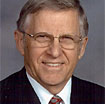Commentary on Acts 1:15-17, 21-26
We begin our examination of this Sunday’s text by looking at its context in Luke-Acts.
Luke begins this book with Jesus’ charge to the disciples. Jesus ordered them to wait in Jerusalem until they had received power from the Holy Spirit, in order to be witnesses to the gospel to the ends of the earth. Next comes Jesus’ ascension into heaven. Afterwards, the disciples returned to an upper room in Jerusalem. There, the disciples and the women with them devoted themselves to prayer.
In those days, Peter stood up to announce that it was necessary, according to Holy Scripture, to appoint a disciple in place of Judas (whose vile end is narrated). It is important to note that this reorganization of the twelve was the first item of apostolic business. Clearly this is a very important reality in the early church’s mission!
Interestingly, both the defection of Judas and the necessity of replacing him by a more worthy one is connected to Old Testament prophecy.
We read the texts of prophecy in Acts 1:20. The references to Psalm 69:25 and 109:8 seem to have been stretched a bit in order to apply to their situation. Apparently, Peter quotes the Old Testament passages using a hermeneutic of reading Scripture that differs from some of our own.
In verses 21 and following, we read that the chosen one must become a witness to Christ’s resurrection. Two men are nominated: Joseph Barsabbas and Matthias.
Eusebius notes that Matthias was one of the seventy disciples of Luke 10:1. Later tradition claimed that Matthias was a missionary to the Ethiopians.
When I was a child and we picked sides for teams, we would often “draw straws.” That’s how the fact that the disciples “cast lots” first strikes me. What kind of a method is this?
But casting lots was not viewed as a haphazard process in biblical times. Rather, it had a respectable history in Hebrew lore (cf. Proverbs 16:33).
We have no knowledge of whether or not this was a practice in the early church. Some commentators note that the story of the selection of Matthias does not advocate the idea of apostolic succession. What is clear, though, is this method facilitated a decision that was in accordance with the will of God for the mission of the church.
So, the first business of the early church was the election of a new twelfth disciple, implying both horizontal and vertical dimensions.
Horizontally, the purposeful structure of discipleship for the life of the church is vital to the church’s mission on earth. Structure is vital to the carrying forth of God’s will for the world, thus presenting us with a contemporary question. What is God’s structural will for us as we seek to carry out God’s missionary purposes in the 21st Century?
But there is a vertical dimension to the story as well: discerning God’s will!
God’s will is crucially important for informing our structures of mission in the world today. A sermon on this text could certainly deal with this reality of our common life together as God’s church in the world. How do we structure ourselves for mission?
My sense, however, is that the question on the minds of our hearers would have more to do with how to discern God’s will for their own lives.
About twenty years ago, a denominational church paper produced a series of articles based on the questions most commonly asked by people in the pews. The most commonly asked question was: “How do I figure out God’s will for my life?”
People want to know the true purpose of their lives. Let me suggest three things that can be said in answer to this question.
First, we know the framework of God’s will for our lives in this world: we are called to love God and to love our neighbor (cf. Matthew 22:36-40 and 1 John 4:20-21).
All the decisions we make about our lives ought to be framed within these two great commandments. Our lives are not our own to do with as we please. We are called to love God by loving our neighbor. This is the framework in which our lives ought to be lived.
Second, we know we live our lives under the canopy of God’s forgiving love.
This is a very important reality. I do not believe that God’s specific will for our life is revealed to many of us for “we walk by faith, not by sight” (2 Corinthians 5:7).
We can pray and pray for God’s specific will to be revealed to us, but few of us will have our prayers answered. So, as Martin Luther advised, we will have to choose boldly our path. We don’t often know for certain which is the right path. We choose, knowing that God’s forgiving love will sustain us in the midst of lives’ many decisions.
And third, we know that nothing can separate us from the love of God.
In Romans 8:28 we read, “We know that all things work together for good for those who love God…” God is at work in the midst of our decisions.
In a sense, this passage from Romans tells us that God is always working to make the best out of our decisions. Our bad decisions do not separate us from God. As people claimed by Jesus Christ and committed to Jesus Christ, we choose, we decide, and we act.
We act in the assurance that nothing can separate us from the love of God in Jesus Christ.

May 24, 2009